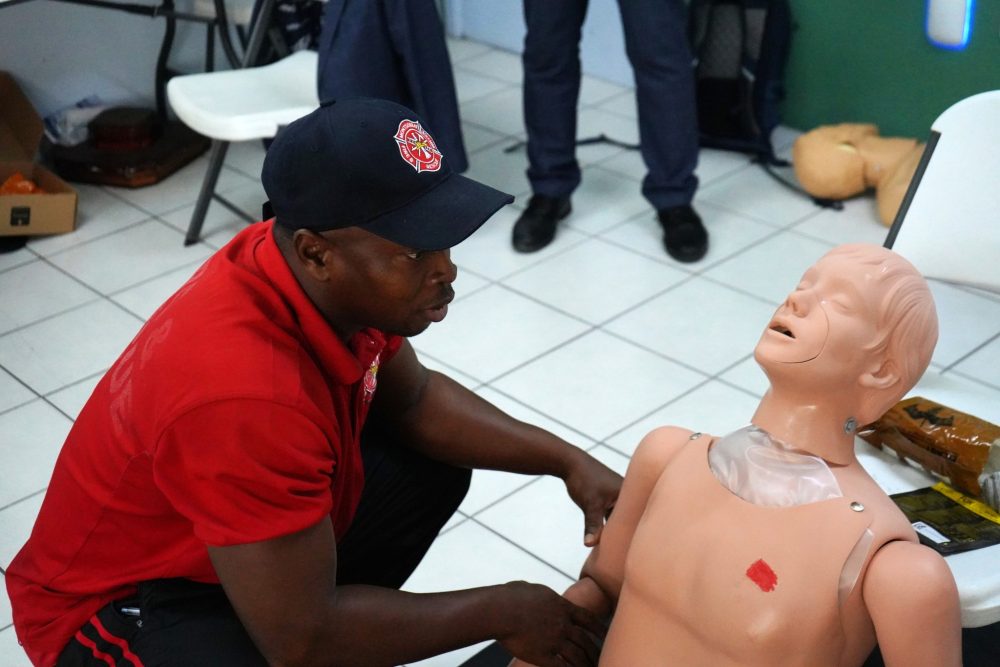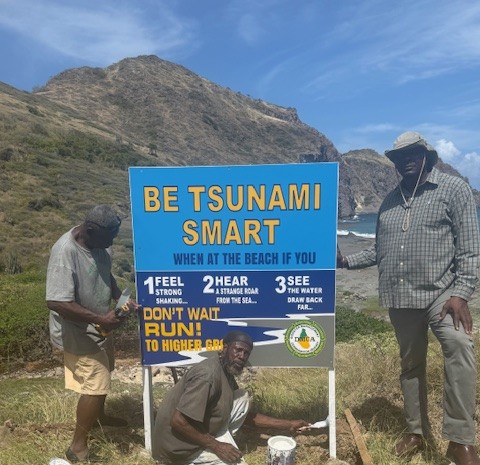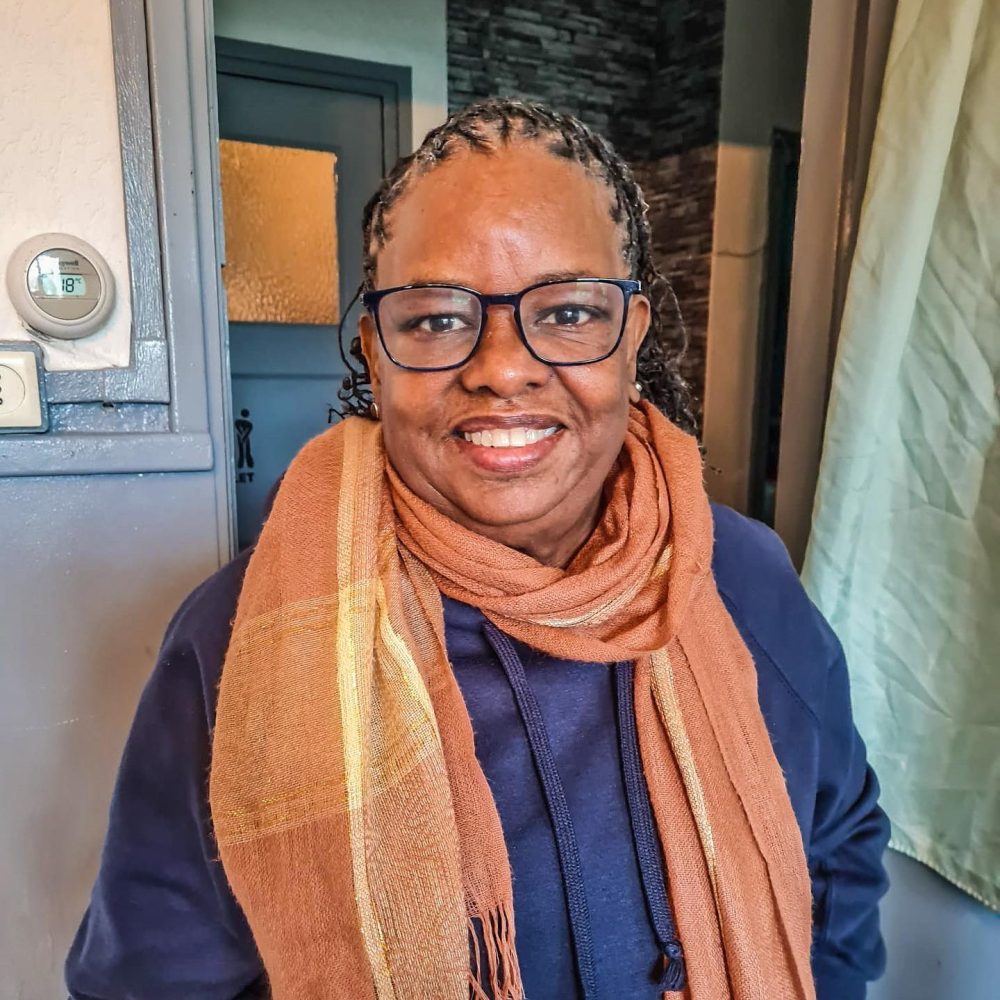By Desmond Brown
 PARIS, France – The United Nations Climate Change Conference (COP21) opened here Monday with an unprecedented 150 world leaders present. UN Secretary General Ban Ki Moon called on the Presidents, Prime Ministers and Heads of States to deliver a universal, meaningful and robust agreement.
PARIS, France – The United Nations Climate Change Conference (COP21) opened here Monday with an unprecedented 150 world leaders present. UN Secretary General Ban Ki Moon called on the Presidents, Prime Ministers and Heads of States to deliver a universal, meaningful and robust agreement.
“You are here today to write a script for a new future; a future of hope and promise, of increased prosperity, security and dignity for all,” Ban said in his opening address.
He noted that the national climate plans submitted by more than 180 countries ahead of the summit cover close to 100 percent of global emissions.
“This is a very good start but we need to go much faster, much further if we are to limit the global temperature rise below 2 degrees Celsius,” the UN Secretary General said.
“The science has made it plainly clear even a 2 degrees Celsius rise will have serious consequences for food and water security, economic stability and international peace and security. That is why we need a universal, meaningful and robust agreement here in Paris.”
Negotiators from the 15-member Caribbean Community (CARICOM) are intent on striking a deal to keep the global temperature rise at 1.5 degrees of pre-industrial levels.
Across the region over the past several weeks, countries have been rolling out their “1.5 to Stay Alive” Campaign to raise awareness about the effects of climate change, while building momentum for the region’s negotiating position at COP21.
Several Caribbean leaders – including Gaston Browne of Antigua and Barbuda; Perry Christie of The Bahamas; Freundel Stuart of Barbados; Dr. Keith Mitchell of Grenada; Dr. Timothy Harris of St. Kitts and Nevis; and Dr. Kenny Anthony of St. Lucia were present at the opening.
“We have never faced such a test. A political momentum like this might not come again. Neither have we encountered such a great opportunity,” Ban told the leaders.
“You have the power to secure the wellbeing of this and succeeding generations. I urge you to use up your ministers and negotiators to choose the path of compromise and consensus and if necessary, flexibility.
“Bold climate action is in the national interest of every single country represented at this conference. The time for brinksmanship is over. Let us build a durable climate regime with a clear rule of the road that all countries can agree to follow. Paris must mark a decisive turning point. We need the world to know that we are headed to a low emissions, climate resilient future and there is no going back,” Ban added.
The host of COP21, French President François Hollande, said he has been travelling to small countries which are the worst affected by climate change and he wants to be their voice “because biodiversity and the very diversity of our planet are at stake.
“From this we can conclude that the agreement must be universal, differentiated and binding.”
Hollande met with Caribbean leaders in Martinique in May following which Secretary General of the Organisation of Eastern Caribbean States (OECS) Dr. Didacus Jules said it was unprecedented given that France would be the chair of COP21.
“He (President Hollande) wants this to be a success and used the opportunity to champion the voices of small island states given the French Republic’s presence in the OECS. We felt that it was really a useful forum for having the voice of the Caribbean in this wider sense heard,” Jules said then.
“That’s one of the reasons that we are now pressing hard with the French authorities to champion the cause of small island states so that the larger countries, those who are the biggest causes of the impacts on the environment take heed to what the scientists are saying.”
Noting that an agreement must be reached in Paris on December 12, President Hollande said developed countries must take responsibility.
“They are the ones who for years emitted the largest amounts of greenhouse gasses,” he said.
“Emerging countries must accelerate their energy transition and developing countries must be supported in adapting to the impacts of climate change hence the need to release and secure financing to promote technology transfer.
“The third condition for an agreement in Paris is that all our societies in their vast plurality and diversity get moving. All local leaders, investors, economic and social actors, citizens, religions, all those who contribute to forming the global public mindset; all of these actors must understand that things have changed. This is the key to overcoming this climate challenge,” the French President said.
Mr. Hollande said to resolve the climate crisis, good wishes and declarations of intent will not be enough.
“We are on the brink of a breaking point. Paris must be the start of a far reaching change. We can no longer consider nature as a commonplace inexhaustible pool of resources there for us to use as we wish,” he said.
“On this first day of the conference we are up against a challenge. This challenge is the sum of our selfishness out perceptions, our resignation. This challenge is built on indifference and powerlessness but it is not insurmountable.
“Everything depends on us. The hope of all humanity rests on your shoulders. This is why we have met.
This is why Paris is an exceptional occasion. We are going to decide in a few days the future for several decades. The greatest danger is not that we aim too high and we miss. The greatest danger is that we aim too low and that we hit it,” Mr. Hollande added.
Discover more from Discover Montserrat
Subscribe to get the latest posts sent to your email.



